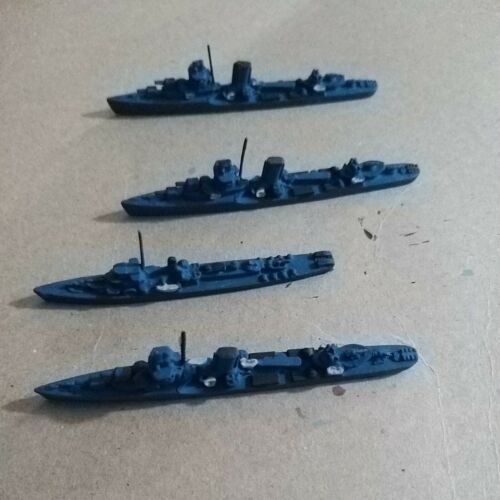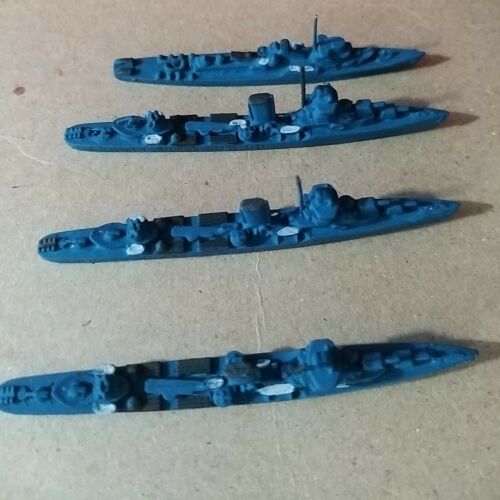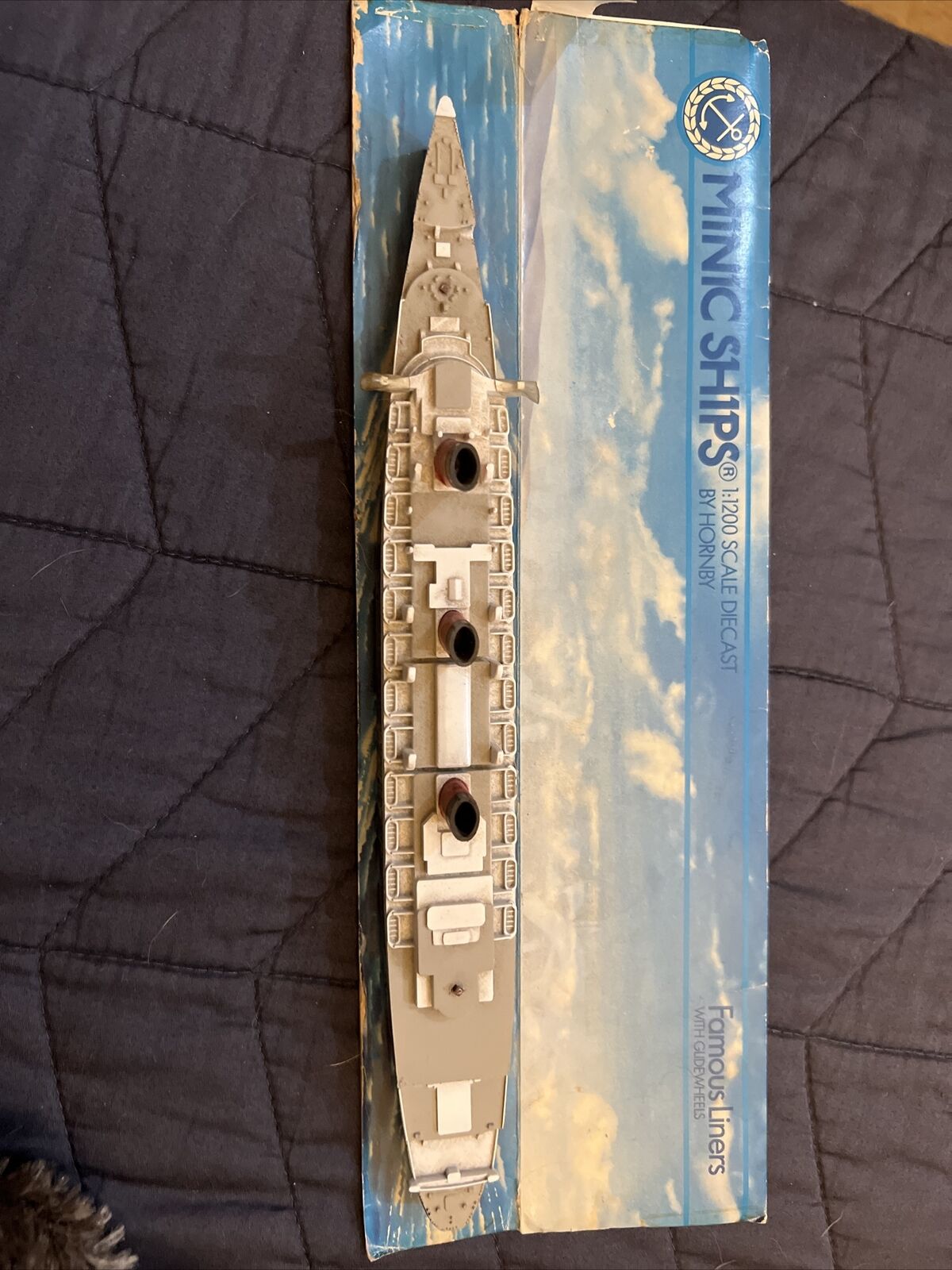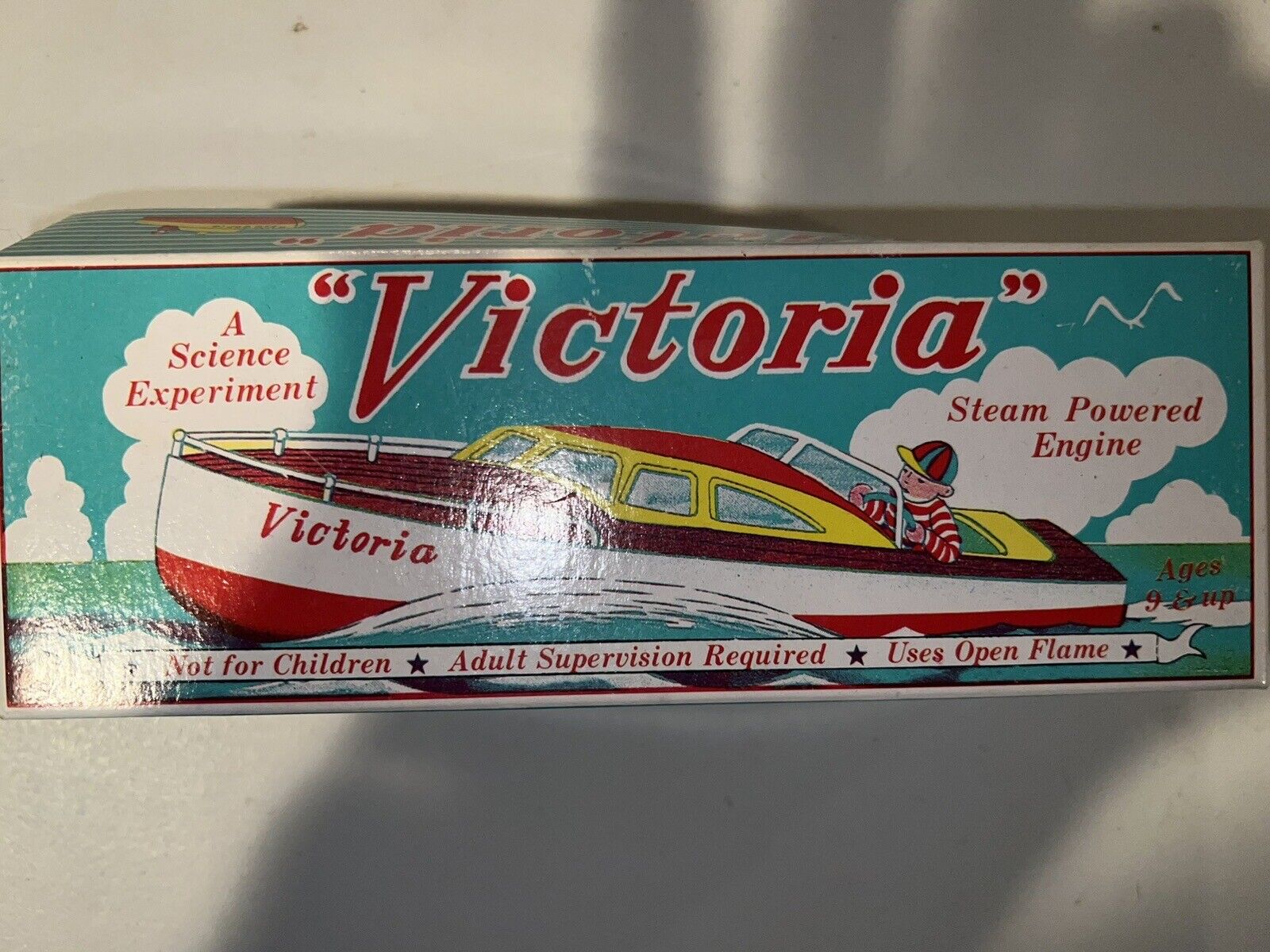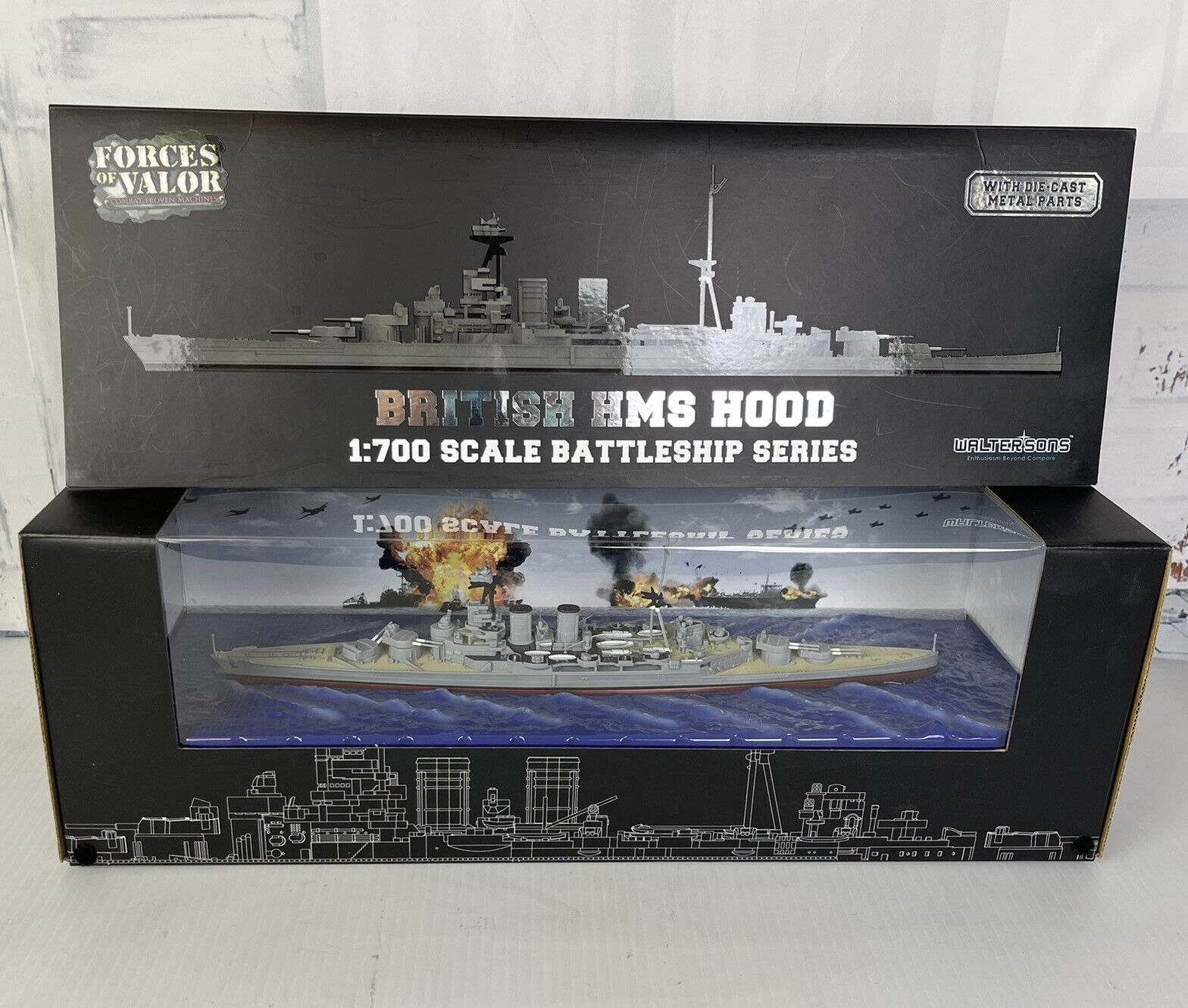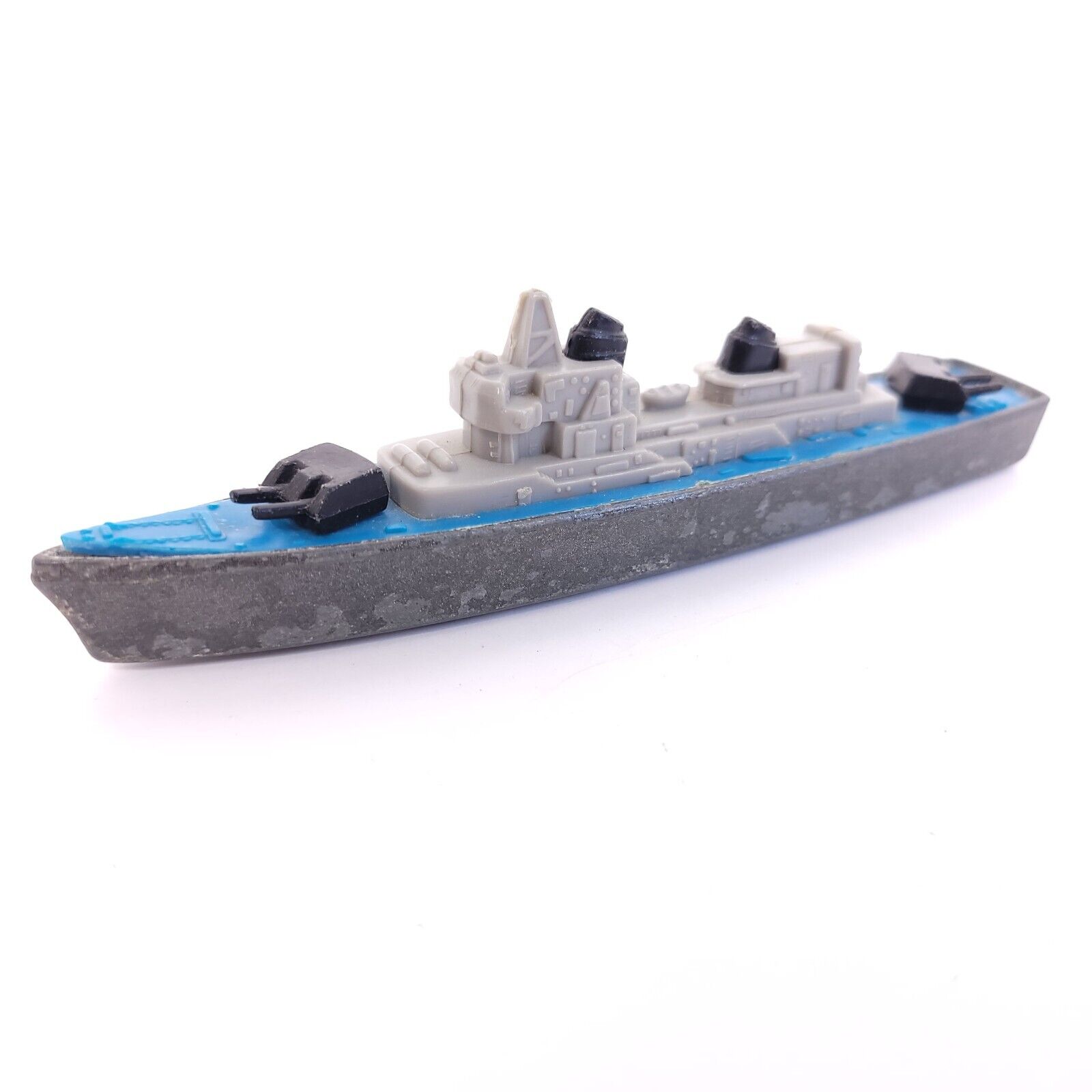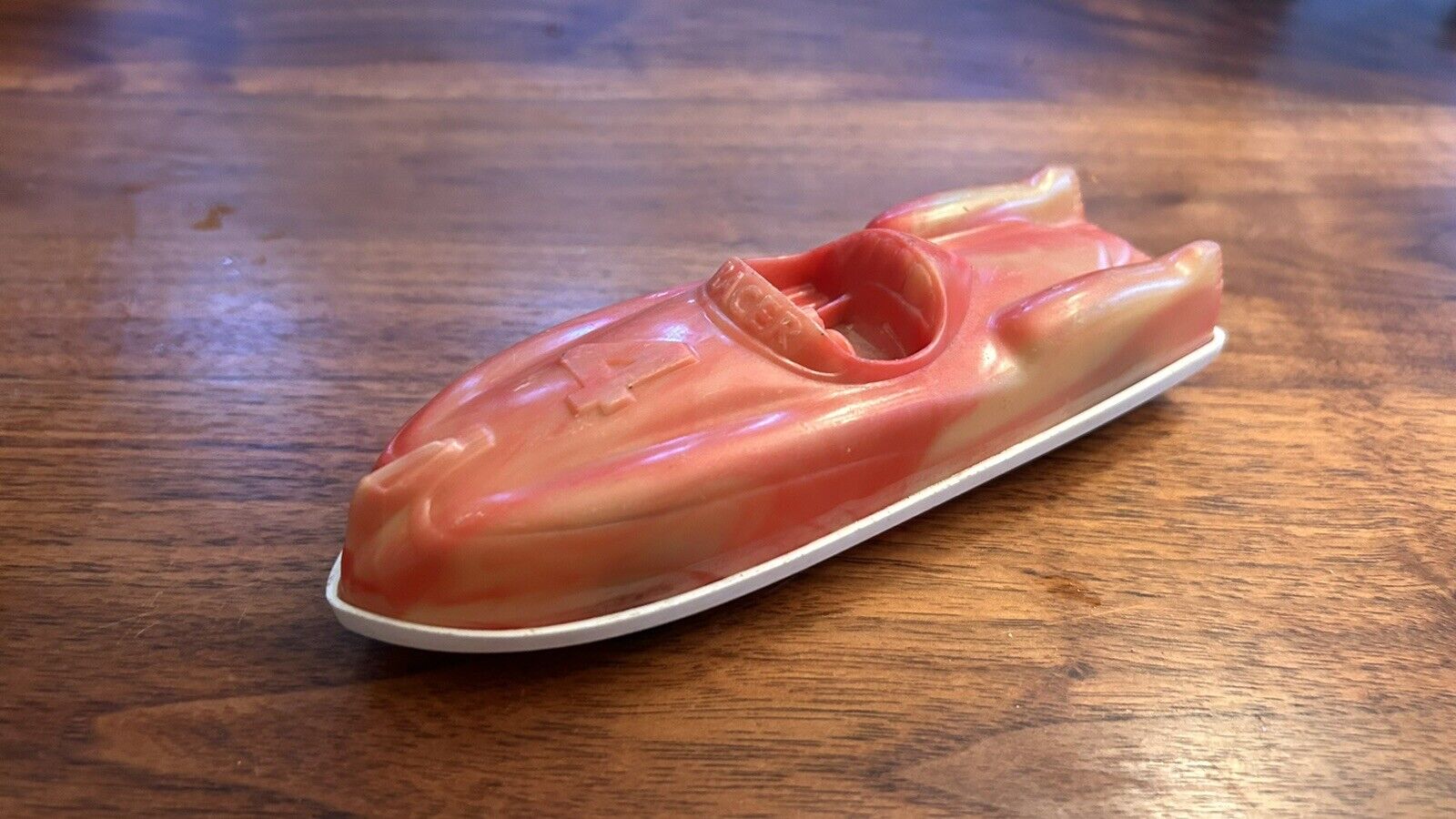-40%
US NAVY WW2 Destroyer squadron 3 Bagley 1 Somers
$ 12.11
- Description
- Size Guide
Description
TheBagley class
of eight
destroyers
was built for the
United States Navy
. They were part of a series of USN destroyers limited to 1,500 tons
standard displacement
by the
London Naval Treaty
and built in the 1930s.
[1]
All eight ships were ordered and laid down in 1935 and subsequently completed in 1937. Their layout was based on the concurrently-built
Gridley class destroyer
design and was similar to the
Benham class
as well; all three classes were notable for including sixteen
21 inch (533 mm)
torpedo tubes
, the heaviest torpedo armament ever on US destroyers.
[2]
They retained the fuel-efficient power plants of the
Mahan-class destroyers
, and thus had a slightly lower speed than the
Gridleys
. However, they had the extended range of the Mahans, 1,400
nautical miles
(2,600 km) farther than the Gridleys.
[3]
The Bagley class destroyers were readily distinguished visually by the prominent external trunking of the boiler uptakes around their single stack.
The
Somers-class destroyer
was a class of five 1850-ton
United States Navy
destroyers
based on the
Porter class
. They were answers to the large destroyers that the
Japanese navy
was building at the time, and were initially intended to be
flotilla leaders
. They were laid down from 1935–1936 and commissioned from 1937–1939. They were built to round-out the thirteen destroyers of 1,850 tons
standard displacement
allowed by the tonnage limits of the
London Naval Treaty
, and were originally intended to be repeat Porters. However, new high-pressure, high-temperature
boilers
became available, allowing the use of a single stack. This combined with weight savings (including elimination of reload torpedoes) allowed an increase from two quadruple center-line
torpedo tube
mounts to three. However, the Somers class were still over-weight and top-heavy.
[1]
This was the first US destroyer class to use 600 psi (4,100 kPa) steam
superheated
to 850 °F (454 °C),
[2]
which became standard for US warships built in the late 1930s and
World War II
.
[3]
